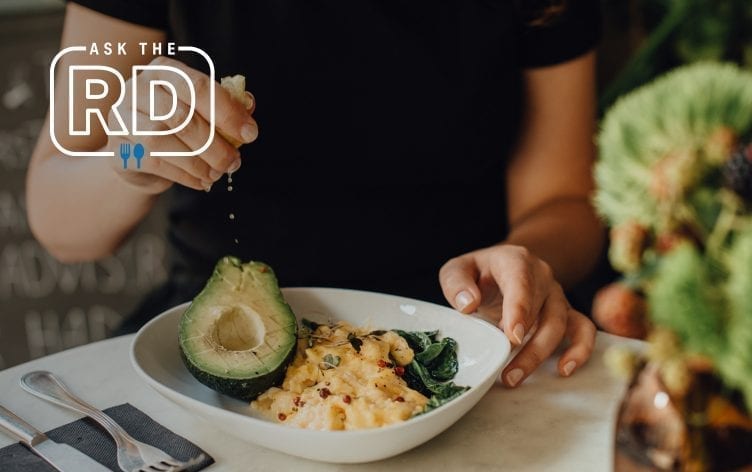
Ask the RD: Is it OK to Skip Breakfast if I’m Intermittent Fasting?

A popular diet and lifestyle, intermittent fasting (IF) touts multiple benefits, including weight loss, protection from diabetes, improved gut health and reduced inflammation. There are many different types of IF with various periods of fasting and non-fasting, including the 16/8 method, which involves eating for 8 hours during the day — for example, 10 a.m.–6 p.m., and fasting the other 16 hours.
There’s a big misconception when it comes to IF — thinking breakfast gets dropped. In fact, you still eat breakfast while intermittent fasting. Breakfast is all about breaking a fast. Intermittent fasting is all about cycles of fasting. It doesn’t necessarily mean your first meal (aka breakfast) has to be at 6 a.m. or 8 a.m. or even 11 a.m. The time you choose to eat breakfast isn’t nearly as important as what you choose to eat to break any fast, any time of the day.
THE METABOLIC IDEA BEHIND INTERMITTENT FASTING
When we eat all day, (and by all day, I mean a typical three square meals and 2–3 snacks) our insulin levels don’t often have time to reset and drop for long enough to allow our bodies to start burning off fat. When insulin is always turned on, we are constantly storing, not depleting, energy in our cells. The metabolic idea behind intermittent fasting is it forces our bodies to turn off the storing mechanism of insulin, and turn on our body’s ability to start burning fuel.
WHY QUALITY OF FOOD TO BREAK YOUR FAST MATTERS
Speaking of insulin, when you have your first meal (or ‘breakfast’), introducing even a small amount of sugar and refined carbs after a long spell without food spikes insulin and sends your blood sugar into shock because there’s nothing to slow down the digestion and absorption of all those sugars. That’s why what you eat makes a difference. For example, eating something like a highly processed, sugary muffin wouldn’t be the best choice because it’s full of sugar and simple carbs which spikes insulin even more. Instead, it’s best to focus on more nutrient-dense foods that include a mix of complex carbs, protein, healthy fats and veggies. Eating foods high in fiber can help slow digestion and aid weight-loss.
THE BOTTOM LINE
Lots of people talk about the importance of eating breakfast daily since it can help you feel more energized and prevent a dip in insulin, which could cause you to overeat, thus negating weight-loss goals. So, breakfast is important — but it’s more about what you eat than when you eat.
Intermittent fasting can help with weight loss, but it’s not necessarily the best approach for everyone, so it’s a good idea to consult with your doctor or a registered dietitian before trying it. Whatever you choose to break the fast with can be deemed breakfast, so the two are not mutually exclusive.
Regardless of your preferred eating habits, it’s important to have a well-balanced meal after a long period of fasting, to keep insulin levels from crashing. If you need some healthy recipe inspiration, try these 20 make-ahead breakfasts with up to 27 grams of protein.
Discover hundreds of healthy breakfast recipes via “Recipe Discovery” in the MyFitnessPal app.











